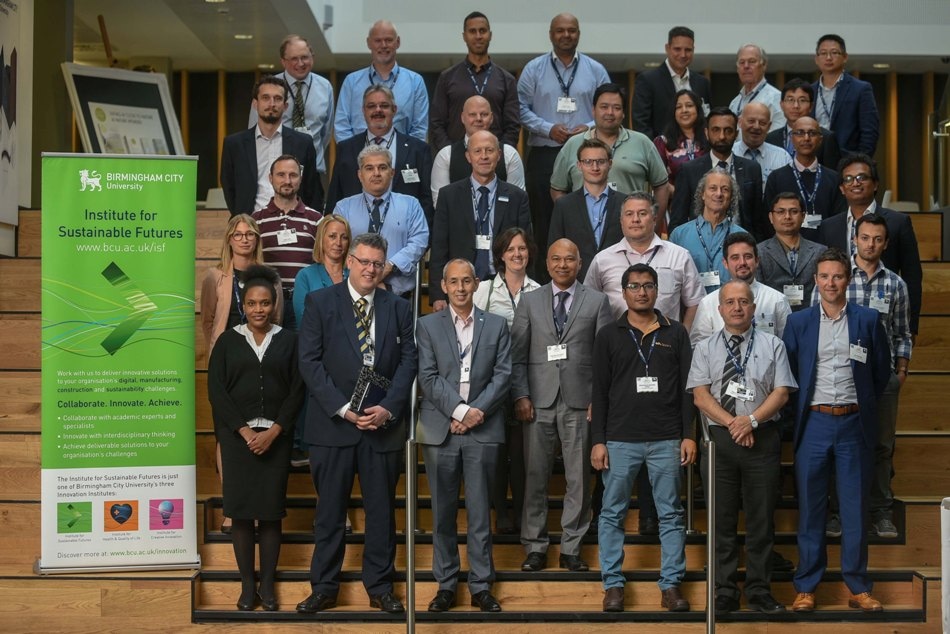Sep 3 2018
Birmingham City University’s annual Magnesium Symposium returns for its second year after a positive response from industry in 2017.
 Magnesium Symposium 2017
Magnesium Symposium 2017
Academics, engineers and industry leaders, such as the International Magnesium Association (IMA), will be heading to Birmingham in October for a unique conference that will get participants thinking about magnesium differently within the manufacturing environment.
At 1.8g/cm³, magnesium is the lightest of all structural materials, the eighth most abundant chemical element in the earth’s crust and is 100 per cent recyclable.
On Tuesday 23rd October Birmingham City University will showcase magnesium as an alternative material, especially for car manufacturers and the aerospace industry in terms of light weighting, fuel efficiency and the circular economy.
The annual symposium has grown out of an exclusive partnership between Birmingham City University and Meridian Lightweight Technologies UK – the world’s largest producer of magnesium die cast components. Together, their mission to change the perceptions of magnesium in manufacturing.
The strategic alliance has seen the two organisations working together in the education, research and development of magnesium use, whilst placing fuel efficiency through weight savings and sustainability at its core. At the heart of this strategic alliance is to investigate making production financially viable for Meridian Lightweighting Technology, bringing cost savings to their customers.
Academics from Birmingham City University’s Faculty of Computing, Engineering and The Built Environment and personnel from Meridian’s Sutton-in-Ashfield plant will be showcasing their research and explaining how businesses can best apply this knowledge.
Past attendees include Aston Martin, Magnesium Elektron and The Institution of Engineering Technology (IET). The event presents a fantastic opportunity to network and access industry-leading knowledge.
Stephen Brown, Business Development Manager, Meridian Lightweight Technologies United Kingdom (MLTUK), said:
“Magnesium, designed and optimised in the correct manner, will provide an enhanced strength, stiffness and stability, and will deliver a higher specific yield strength and specific modulus than nearly all other structural metals.
“Our partnership with Birmingham City University is committed to improving the industry understanding of magnesium and will encourage the automotive industry to consider magnesium as a lightweighting alternative material. The industry is increasing its use of magnesium yearly and our partnership intends to lead the sector, which presently lacks the skills and expertise regarding the ‘dos and don’ts’ necessary when designing and developing in magnesium.
“Misconceptions are still rife at original equipment manufacturer (OEM) engineering level. However, Meridian are committed to tackling this issue wherever we can – and in the most professional manner – in partnership with Birmingham City University.”
Magnesium is produced from sea water, brines and magnesium-bearing minerals which offer unlimited reserves, with an estimated 500,000 metric tons produced each year. It is 75 per cent lighter than steel and 33 per cent lighter than aluminium.
Makhan Singh, Development Manager for the Institute for Sustainable Futures at Birmingham City University, said:
“As part of our collaboration with MLTUK, Birmingham City University has established the multidisciplinary Magnesium Innovation Group. We are keen to support a Midlands-based company – with international links in Canada, China, Germany, India and Mexico – with innovations that support needs pre and post-Brexit in important sectors.
“A cluster of several academics have worked in close partnership with technical and engineering leads at MLTUK. Current magnesium manufacturing processes create the same amount of waste as product, and the Magnesium Innovation Group are investigating ways on how value can be created from excess material, for example.
“Elsewhere, two psychologists from our Faculty of Business, Law and Social Sciences have spent time interviewing engineers from across the UK. Working with MLTUK, they are trying to understand why there has been a historical aversion to designing products with magnesium, when compared to less sustainable and heavier metals.”